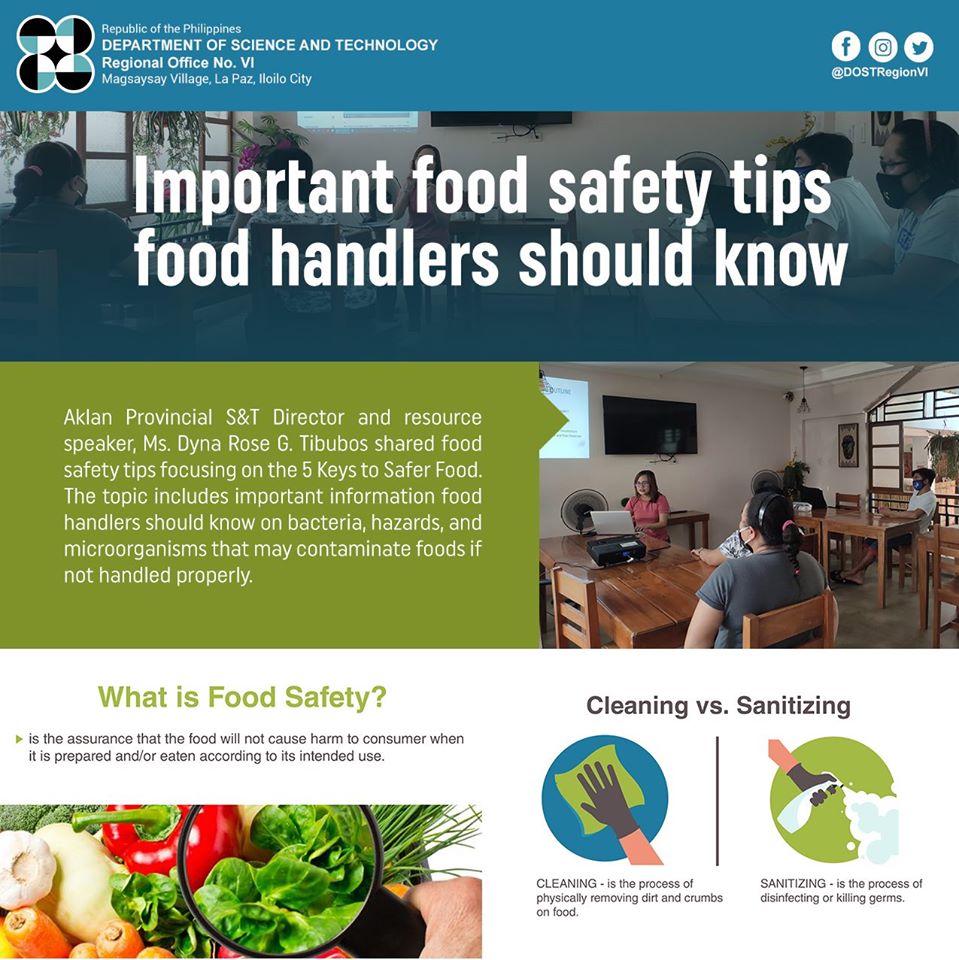
Kalibo, Aklan – The primary transmission route of the COVID-19 virus is through direct contact with the respiratory droplets (sneeze or cough) of an infected person. To date, there is no evidence that COVID-19 viruses can be transmitted to food or food packaging. However, studies found that the COVID-19 virus can survive on some surfaces for a limited time. These studies were conducted under controlled laboratory conditions (relative humidity and temperature) and should be interpreted with caution in real-life settings.
Training on food safety was conducted by the Department of Science and Technology Region VI (DOST VI) through its Aklan Provincial S&T Center (Aklan PSTC) as per the request of Papierus Pensionne, a lodging house in the province of Aklan that also produce processed foods to its guests and walk-in customers. Aklan Provincial S&T Director and resource speaker, Ms. Dyna Rose G. Tibubos shared food safety tips focusing on the 5 Keys to Safer Food. The topic includes important information food handlers should know on bacteria, hazards, and microorganisms that may contaminate foods if not handled properly. The key contributors in keeping the food clean were taught to include proper cleaning and handwashing. Also, proper washing of dishes and other utensils are important for food safety.
Other means discussed are the proper storage of food, the proper arrangement in the freezer, color coding of chopping boards, among others. Proper cooking of food was also emphasized to ensure the safety of the food at the correct temperature of above 70 degrees Celsius to kill bacteria. The training also includes the storing of food to avoid spoiling and not leaving leftovers for more than 3 days and reheating them only once. Likely important is the use of treated or safe water to wash raw food, utensils, and kitchen wares. We must use safe and clean raw materials to ensure clean and safe food to eat.
The participants followed proper health and safety protocols during the conduct of the training to avoid overcrowding at the venue. The DOST VI makes certain that the office remains productive without compromising the health and welfare of its employees and stakeholders. Having demonstrated how science-based approaches can mitigate the impacts of COVID-19, DOST VI will continue to implement programs, projects, and activities for the rehabilitation and recovery of the affected sectors in Western Visayas. The regional office commits to contribute to the revival of economic activities and livelihood in the region. Its clients are encouraged to call in for scheduling as well as communicate online or through SMS to limit their exposure to the environment while at the same time be provided with the services that they require. (SSalazar/DOST VI)

